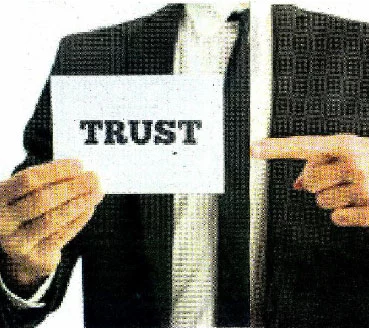CREDIBILITY: Good governance, stakeholder engagement, anti-corruption efforts, transparency and competitive behaviour are necessary for trust in society
LlKE millions of Malaysians, I receive dozens of emails every day claiming that I have inherited or won lotteries worth millions of dollars, been chosen as a business partner and will receive fat commissions for small upfront payments, and so forth.
Most of us dump these emails into the junk folder, in my case with angry contempt. These attempted scams insult our intelligence and are not worthy of the slightest bit of credibility. Imagine what Malaysia would be like if there were a similar level of societal distrust. Try to picture how our people would behave and businesses function.
Around the world today, we can see real life examples of what happens when citizens do not trust each other, never mind their political, legal and administrative institutions. Public cynicism reigns supreme but so do tyranny, oppression injustice and, of course, corruption. Respect for the law is a myth. So, too, is simple morality and humanity. Those in positions of power are as likely to perpetrate crimes as act against them.
For all the uncredit-worthy speeches of political and social leaders, their behaviour and actions remain divisive and untrustworthy. Empirical studies show that trust and confidence are indeed deep determinants of economic growth and progress. Because they are integral to property rights, they are also instrumental in promoting creativity and innovation. In a 2001 article entitled “Trust and Growth” published in the United Kingdom’s Royal Economic Society’s The Economic Journal, for example, Paul Zak and Stephen Knack find strong evidence that high trust societies produce more output than low trust ones.
More recently, a 2015 article in the International Journal of Social Economics by Mahyudin Ahmad (a Cambridge-based Malaysian academic) and Stephen Hall showed that using different proxies for trust greatly improves results. The need for high degrees of trust really ought to be self-evident. Businesses already know this but the rest of us merely assume it to exist. Everything starts with people and ends with them.
Trust may therefore be as, if not more, potent than investment, technology and education put together. Growing mutual suspicion virtually guarantees that countries proceed down’ a vicious spiral. First society becomes polarised among its many fault lines, then it fragments and crumbles. For all the wealth of empirical studies demonstrating the importance of trust, however, few address the really critical issue of how to either build or recover it when it is on the decline.
There are plenty of general suppositions but few really comprehensive ideas as to how to unpack and implement them. Trust may be as, if not more, potent than investment, technology and education put together Good governance and stakeholder engagement, for example, are commonly cited factors. So, too, are anticorruption efforts, transparency and competitive behaviour.
The issue is credibility: the very people expected to carry out reforms are often the ones that had a hand in creating the problems in the first place. It is hard to believe that those that open up trust deficits can, somehow, miraculously close them. The same people who once spoke about the need for trust are often found to have engaged in cover-ups of wrongdoings, crackdowns on dissent and short-circuiting good democratic practices.
More than just sending mixed signals, credibility, which is the basis for trust, is further eroded. Those who have lost the trust of the people usually end up trying to buy loyalty instead. Those with the capacity to bring about positive change either end up on the sidelines or leave the country altogether. When one does not have a voice, loyalty is illusory and exit becomes an attractive option.
Those unable to leave may simmer in frustration for a long time but eventually pent-up pressures will have to be released, and quite a few times, violently. Obviously nothing good comes out of growing mistrust.
What then is the solution? FIRST, this may sound terribly naive but for progress, there must be an insistence on integrity and credibility.
This must be founded in law and given to scrupulous men and women to implement. There cannot be half measures even though people will try to find ways around the law.
SECOND, granted people can and do change but those who cynically exploit loopholes and without moral credibility must be excluded from power. This, too, should be non-negotiable.
THIRD, those who have unselfishly faced long adversity in the struggle for a better future, and therefore are deserving of popular trust, should be the rallying point for change.
Article by Dato’ Steven Wong which appeared in New Straits Times, July 12, 2016.





